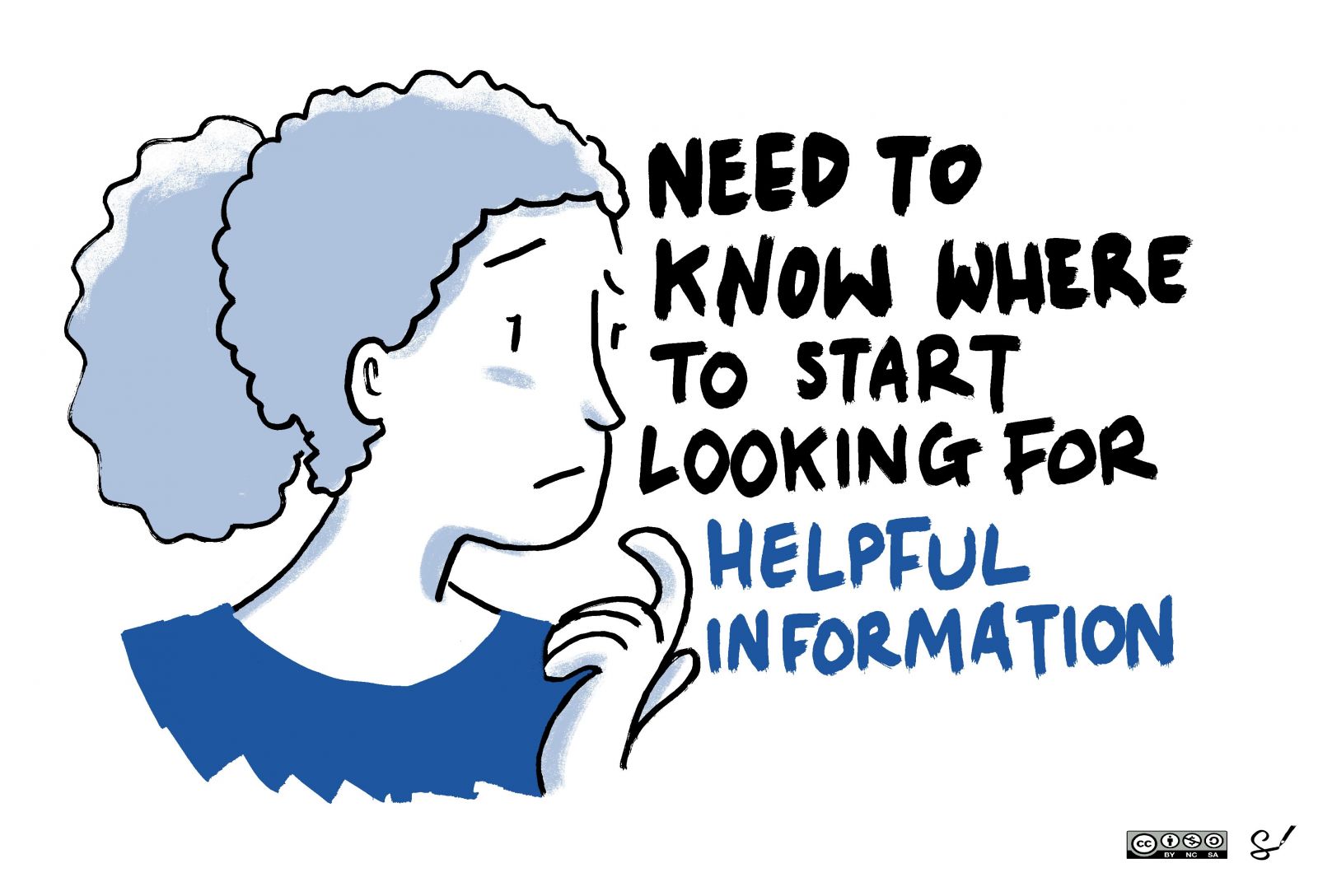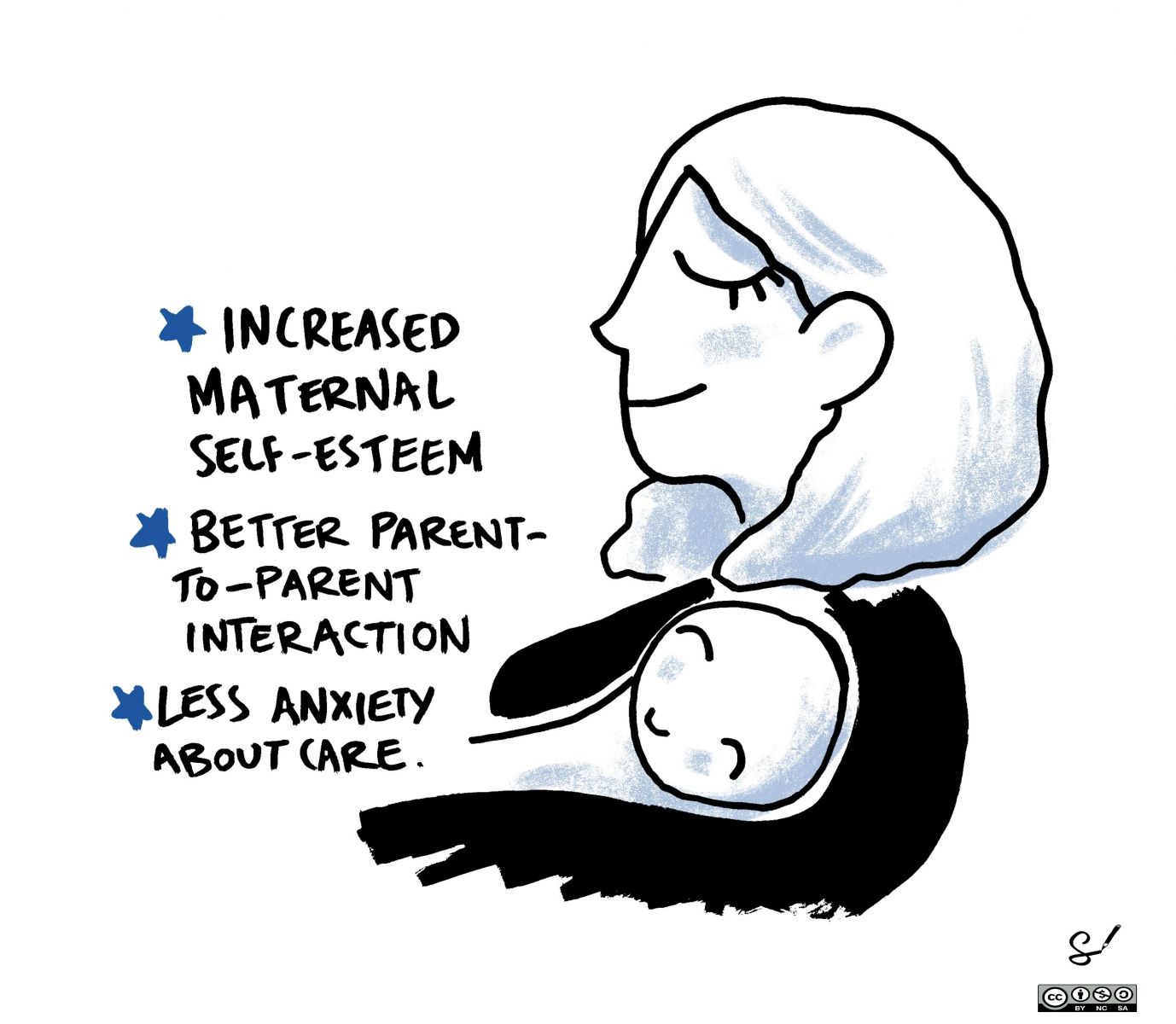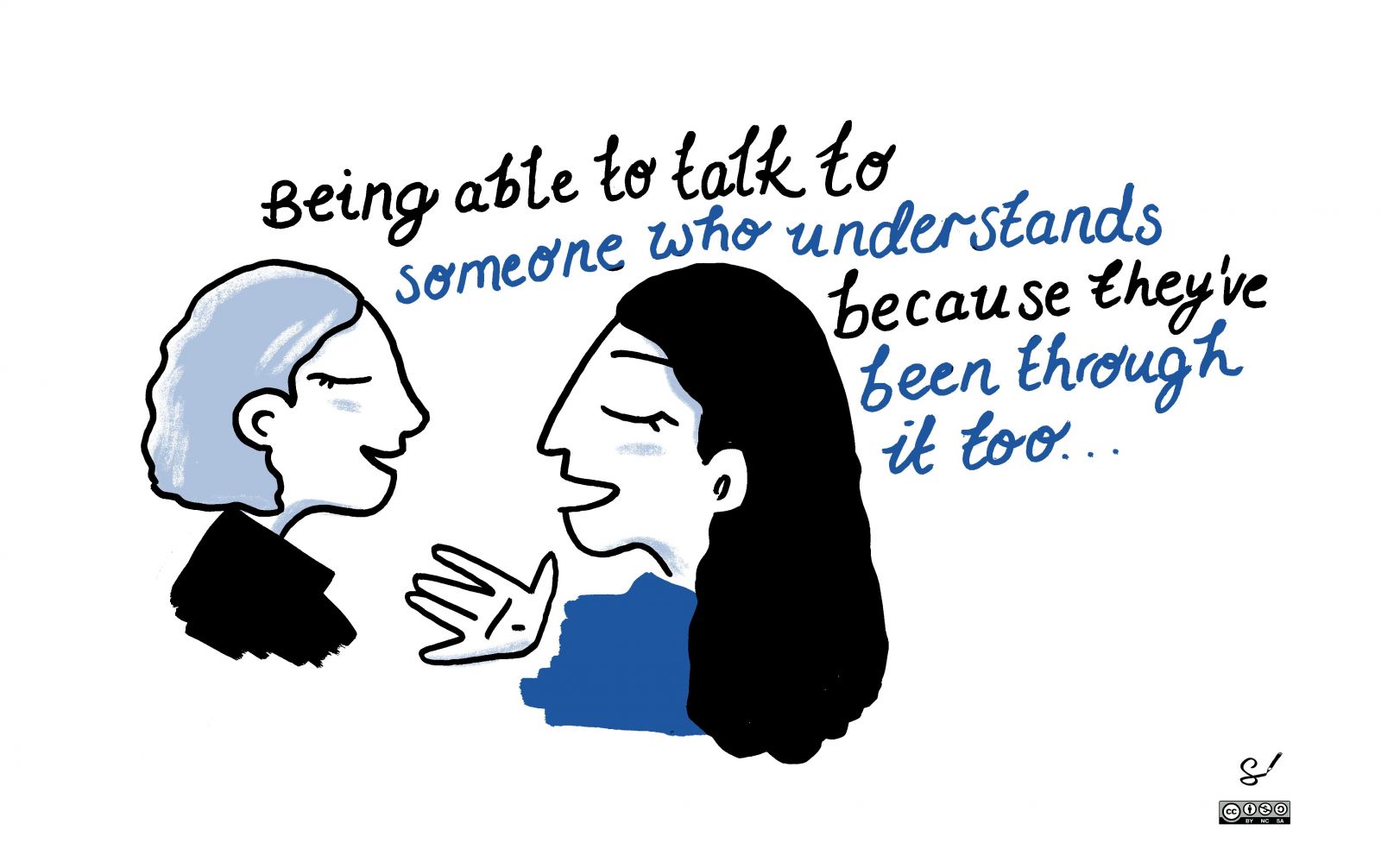
Background
Parents of babies admitted to neonatal units experience an emotional journey for which they are ill-prepared. Feelings of helplessness, fear, sadness, guilt, grief and anger are common, and may persist long after discharge from the unit. These experiences can have negative effects on long-term outcomes.
Evidence has shown that support from peers with first-hand experience, who are therefore able to empathise with problems and challenges, is beneficial in many settings. However, the contribution of parent-to-parent (P2P) support within the neonatal context has not been fully explored.
Aims 
The aim of this research project was to bring together all the evidence in relation to P2P support for families with babies cared for in neonatal care in a systematic review. From this synthesis, the team aimed to provide a state-of-the-evidence summary to support the NHS and other stakeholders. It was hoped that this would inform practice in the neonatal context for the benefit of families and inform future research.
Objectives
1. To bring together studies which have explored the experience of P2P support from the perspective of the persons giving and receiving peer support. 2. To determine the key characteristics, components and processes that should be included in P2P support for parents of babies cared for in neonatal care settings, whilst on the unit and after discharge home. 3. Where adequate data is available, to determine the effectiveness of P2P support interventions on the health and well-being of parents and their premature babies. 4. To arrange a one-day impact conference with representatives from neonatal units, national neonatal networks, commissioners of services and parents with experience of neonatal unit life to discuss what the findings mean for clinical practice and service provision.

Project Activity
The project was a systematic review of peer support interventions for parents of babies in a neonatal unit and was conducted by searching published and unpublished research studies and academic databases, speaking to clinicians, researchers and parents, and looking at websites of relevant organisations.
A one-day impact conference was held with representatives from neonatal units, national neonatal networks, commissioners of services and parents with experience of neonatal unit life to discuss what the findings of the review might mean for clinical practice and service provision.
The research was carried out in partnership with a study-specific Parent Advisory Group (PAG) comprising parents with direct experience of care for a baby on a neonatal unit. The group included parents with varying experiences. For example, babies of differing gestational ages, health care needs and family circumstances, experience of level 1,2 and 3 neonatal units, and differing long-term outcomes.
Project Outputs and Impact
Interventions were found to be generally effective in reducing stress and increasing parents’ perception of being supported. However, some knowledge gaps were identified – for example the experience of support from the fathers’ perspective – which need to be addressed. Overall, the project provides a state-of-the-evidence summary to support the NHS and other stakeholders while informing practice in the neonatal context for the benefit of families and future research. The team brought together local and national neonatal representatives to discuss the findings of the review and to ensure that the work had an impact on services.
Next Steps
The project made a number of recommendations for possible future work in this area.
Related publications
Hunt. H., Abbott. R., Boddy. K., Whear. R., Wakely. L., Bethel, A., Morris. C., Prosser. S., Collinson. A., Kurinczuk. J., Thompson-Coon. J. (In press) “They’ve walked the walk”: A systematic review of quantitative and qualitative evidence for parent-to-parent support for parents of babies in neonatal care. Journal of Neonatal Nursing DOI: 10.1016/j.jnn.2019.03.011
Hunt. H., Whear. R., Boddy. K., Wakely. L., Bethel, A., Morris. C., Abbott. R., Prosser. S., Collinson. A., Kurinczuk. J., Thompson-Coon. J. (2018) Parent-to-parent support interventions for parents of babies cared for in a neonatal unit—protocol of a systematic review of qualitative and quantitative evidence. Systematic Reviews DOI: 10.1186/s13643-018-0850-2
We recently presented at the Graphic Medicine conference in Brighton, July 2019. We shared a Poster and a lightning talk on how we used graphics throughout our work on this project.
We also presented at the 25th Cochrane Colloquium in Edinburgh 2018:
- Thompson-Coon. J., Hunt, H., Gwernan-Jones, R., Boddy, K., Morris, C., Rogers, M., Bethel, A., Abbott, R. Improving communication in multi-disciplinary review teams: reflections on the co-production and use of plain language protocol summaries. In: Abstracts of the 25th Cochrane Colloquium, Edinburgh, UK. Cochrane Database of Systematic Reviews 2018;(9 Suppl 1):[pg 98] https://doi.org/10.1002/14651858.CD201801
- Boddy, K., Salmon, V., Cockcroft, E., Hunt, H., Thompson Coon, J., Wakely, L., Jarvie, R., Dean, S., Pearson, M., Liabo, K. Reviewing outside the office: involving women with young children in systematic reviews. In: Abstracts of the 25th Cochrane Colloquium, Edinburgh, UK. Cochrane Database of Systematic Reviews 2018;(9 Suppl 1):[pg 107] https://doi.org/10.1002/14651858.CD201801
- Hunt, H., Whear, R., Boddy, K., Wakely, L., Bethel, A., Morris, CM., Abbott, R., Thompson Coon, J. Reflections on embedding patient and consumer involvement in the PaReNt project. In: Abstracts of the 25th Cochrane Colloquium, Edinburgh, UK. Cochrane Database of Systematic Reviews 2018;(9 Suppl 1):[pg 111] https://doi.org/10.1002/14651858.CD201801
Further Information
Here is a blog about involving parents in our research and one about the Graphic Medicine conference. We have written about attending the Neonatal Society Spring Conference 2019 for which the presentation is also available.
In support of Neonatal Mental Health Awareness week @HarrietAHunt and @SNUGNeonatal ran a parent hour tweetchat on the 17th April 2-3pm #NICUMHAW.
Our research has been shared in the South West Neonatal Network Newsletter July 2019 and in the national BLISS newsletter ‘The BLISS Journal‘ – July 2019.
Funding
This research was funded by the National Institute for Health Research (NIHR) Research for Patient Benefit (RfPB) and Supporting Neonatal Users and Graduates (SNUG).
This research was supported by BLISS and the National Institute for Health Research (NIHR) Collaboration for Leadership in Applied Health Research and Care South West Peninsula.
This work is licensed under a Creative Commons Attribution-NonCommercial-ShareAlike 4.0 International License.

